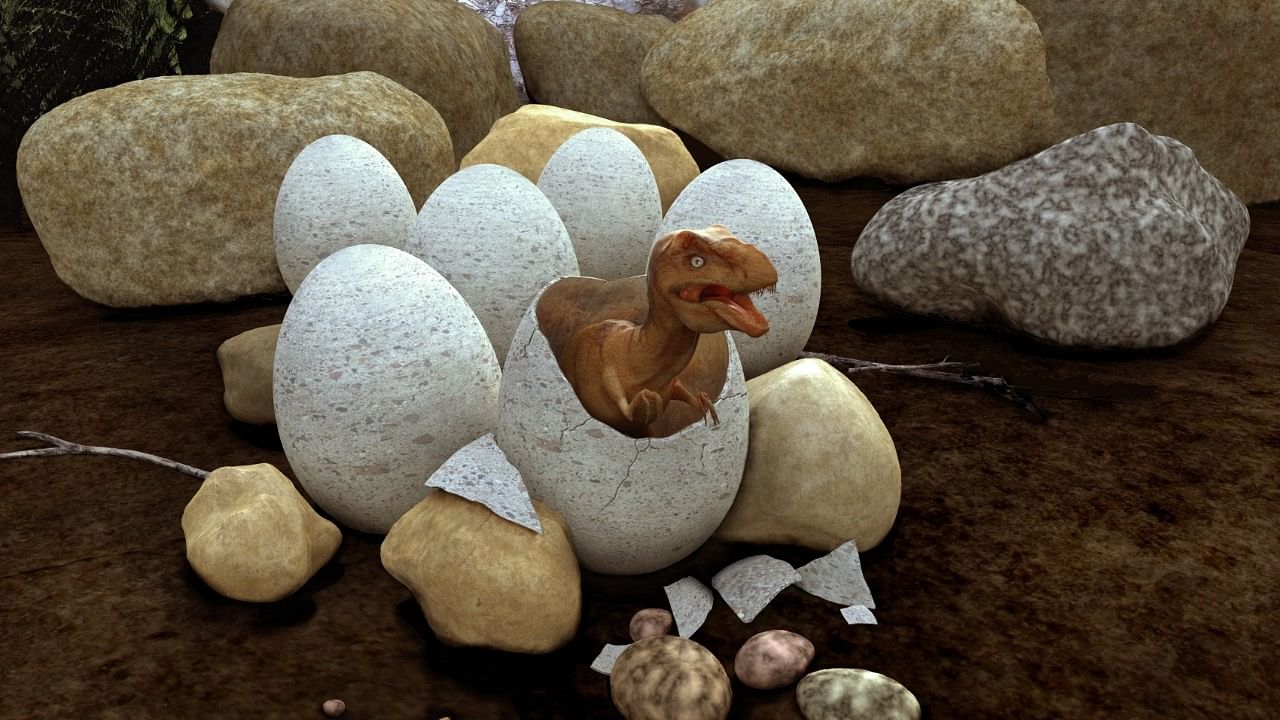
Representative illustration of a dinosaur egg.
Credit. iStock Photo
Faith turned into shock for many in Madhya Pradesh when it turned out that the small, palm-sized 'stone balls' they were worshipping were actually fossilised dinosaur eggs.
The matter came to light when a team of experts from Lucknow's Birbal Sahni Institute of Palaeosciences visited the place. The experts, after their research, concluded that the fossilised eggs belonged to the Titanosaurus species of dinosaurs, The Times of India reported.
It turned out that many in Madhya Pradesh's Padlya village in the Dhar district had come across these 'stone balls' while digging. Vesta Mandaloi, a 40-year-old from the area, saw a generational belief overturned as a result. His family, had for long, been worshipping their 'stone ball' as a 'kuldevta', which loosely translates to 'clan deity', and thought of it as 'Kakar Bhairav' - a totem that would protect them.
'Kakar' translates to land, and 'Bhairav' means the Lord. The Mandaloi family thus far had believed it would safeguard their cattle and farmland for protection.
In a discovery, earlier this year, Paleontologists reported a rare finding of closely located dinosaur nests and 256 eggs of the herbivorous Titanosaurs in the Narmada valley in Madhya Pradesh.
The findings were published in the PLOS One research journal this week by Harsha Dhiman, Vishal Verma, and Guntupalli Prasad, among others.
The discovery indicated that the Narmada Valley served as a dinosaur hatchery zone millions of years ago.
Verma, considered to be the driving force behind a series of discoveries of dinosaur fossils in Narmada, said the reason behind multi-shell eggs could be the inability of the mother to find favourable conditions for laying eggs.
(With PTI inputs)